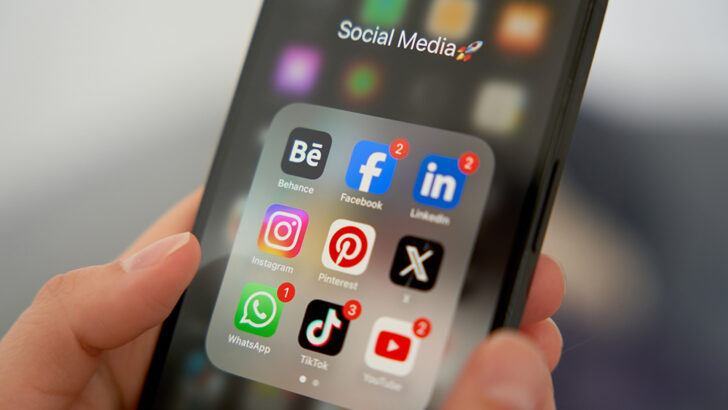Sometimes, political spouses change history. Annabel Malinauskas, wife of the premier of the small state of South Australia, Peter Malinauskas, finished reading Jonathan Haidt’s book, The Anxious Generation: How the Great Rewiring of Childhood is Causing an Epidemic of Mental Illness. She then turned to her husband and said, ‘You had better effing do something about this.’
Many parents feel like that but Peter Malinauskas was in a position to introduce legislation in his own state, which rapidly became a proposition for the federal Australian Parliament.
By the end of November, a mere six months later, the Australian parliament voted to ban social media for children under 16.
The legislation will not commence for a year but trials of enforcement methods will begin early in the New Year.
Malinauskas’ maternal grandparents were middle-class Irish, despite the name, and he attended Mercedes College, founded by the Irish Sisters of Mercy in 1954.
While describing himself as a poor Catholic who does not attend Mass every week, he has also spoken about how the Mercy Keys – mutual respect, compassion, integrity, justice, responsibility and loyalty – influenced his life.
Those keys are signally absent from social media, particularly for young people.
Protections
77 per cent of Australians back the under-16 social media ban, according to an Australian government YouGov poll. The Australian Prime Minister, Anthony Albanese, summed it up: “Parents want their kids off their phones and on the footy field. So do I.”
Jonathan Haidt, author of the book read by Peter Malinauskas’ wife, has been to the forefront of the battle to undo the harms of what he calls a phone-based childhood. He believes that children need a play-based childhood. Instead, they are over-protected in the real world and under-protected online.
It’s entirely likely the ban could see young people pushed to darker corners of the internet where no community guidelines, safety tools, or protections exist”
He states that anxious parenting combined with being glued to phones from younger and younger ages has led to four foundational harms. The first is social deprivation because so many interactions are now online. The second is sleep deprivation, which leads to “depression, anxiety, irritability, cognitive deficits, poor learning, and lower grades.” The third is attention fragmentation because our dopamine-driven attention spans get shorter and shorter. The final is addictive behaviour, where people are completely dependent on their phones.
If we adults were honest, we could quite easily recognise ourselves, too, in that quartet. But those of us born before the year 2000 grew up with phones as mostly fixed objects in the hall, not portals to the entire world, including its darkest aspects.
Haidt believes that no one under the age of 14 should have anything except a brick phone, that schools should be entirely phone-free, and that people should be aged 16 before they have a social media account.
At the same time, children should be encouraged to go outside, play sports and take risks.
Filtering
Haidt addressed by video call an Australian social media summit hosted by two states which was designed to build momentum for support of a ban.
Predictably, the ban has its critics. The social media platforms are unhappy. A TikTok spokesperson claimed that “It’s entirely likely the ban could see young people pushed to darker corners of the internet where no community guidelines, safety tools, or protections exist.”
Yes, there are controls on TikTok such as family pairing, where parents can set time limits and to an extent, filter what their child is viewing. Nonetheless, these controls are flawed and partial.
Research by DCU’s Anti-Bullying Centre, which set up fake accounts to track what boys would experience on TikTok and YouTube found that the accounts were fed toxic male stereotypes from the so-called manosphere, irrespective of whether they sought them out or not. Frighteningly, they all received this content within the first 23 minutes of the experiment.
Some see the Australian ban as unenforceable without significant privacy concerns, which is ironic given how privacy is being invaded now.
It marks an end to shoulder-shrugging learned helplessness. It will be an imperfect solution, no doubt, but it is so much better than doing nothing”
Also, while young people may be ingenious about getting around parental controls, there is a growing awareness among young people of how much of their lives are being sucked up by social media.
When Haidt asked young people about self-regulating their social media usage, they were all sceptical about achieving anything. However, they felt that a blanket ban could help. Even though some will circumvent it, it will give others permission to cut back on what they know are addictive behaviours.
Other countries, like France, have tried less sweeping bans but Australia’s experiment is important. It marks an end to shoulder-shrugging learned helplessness. It will be an imperfect solution, no doubt, but it is so much better than doing nothing.
Without legislation, the weight both of social pressure and algorithms designed to hook our children into hours of passive surfing that injure their mental health is difficult if not impossible for parents to resist.


 Breda O'Brien
Breda O'Brien
